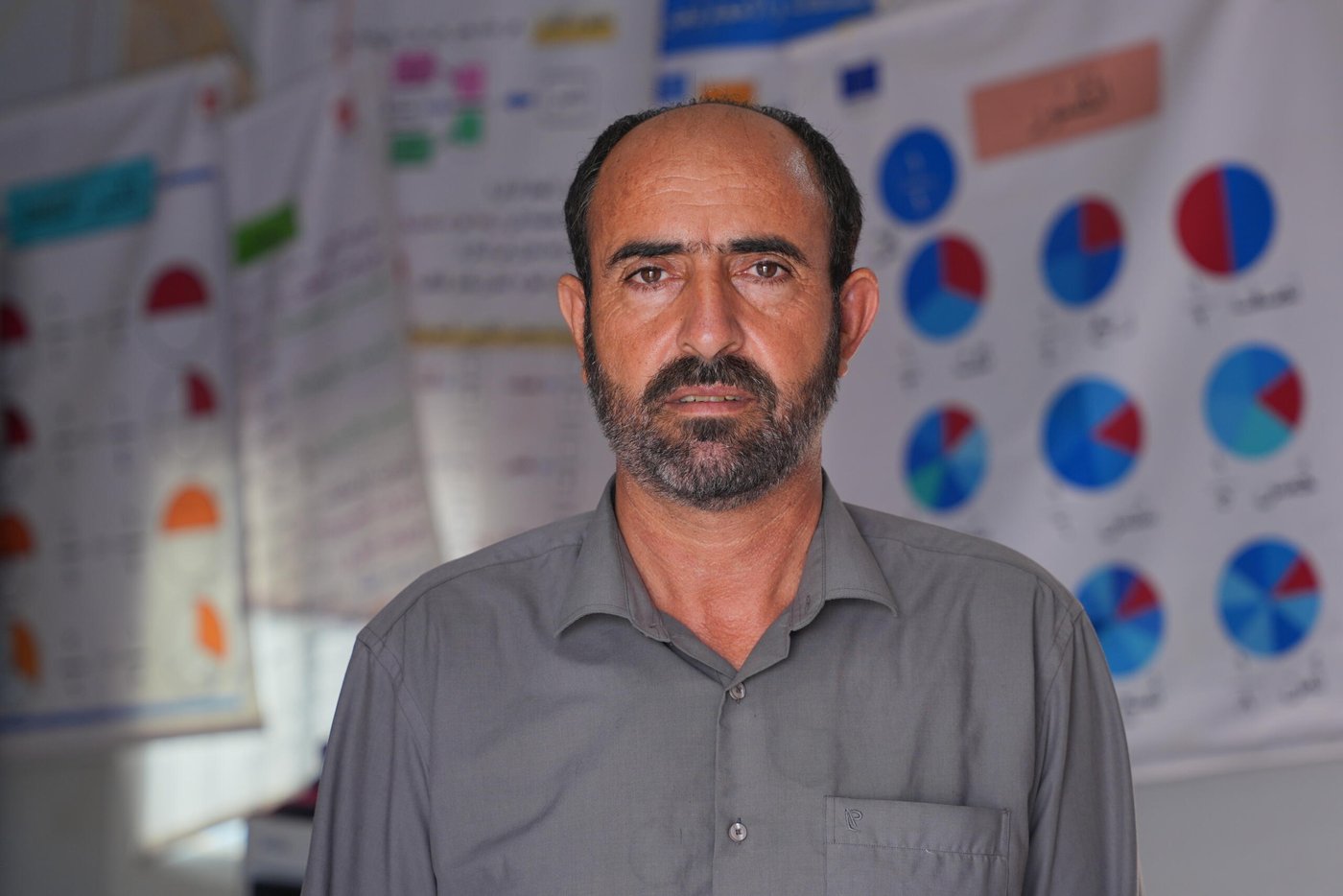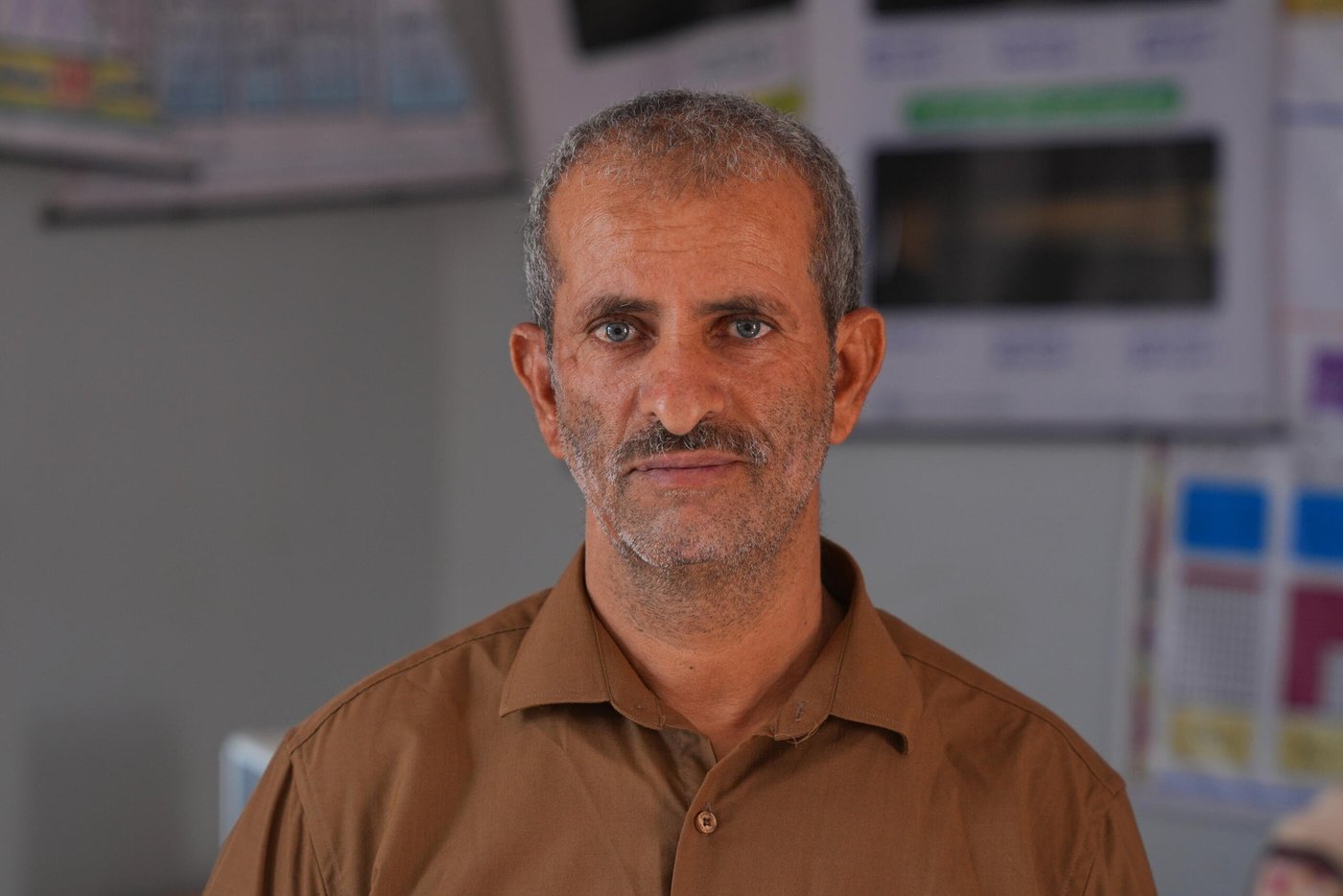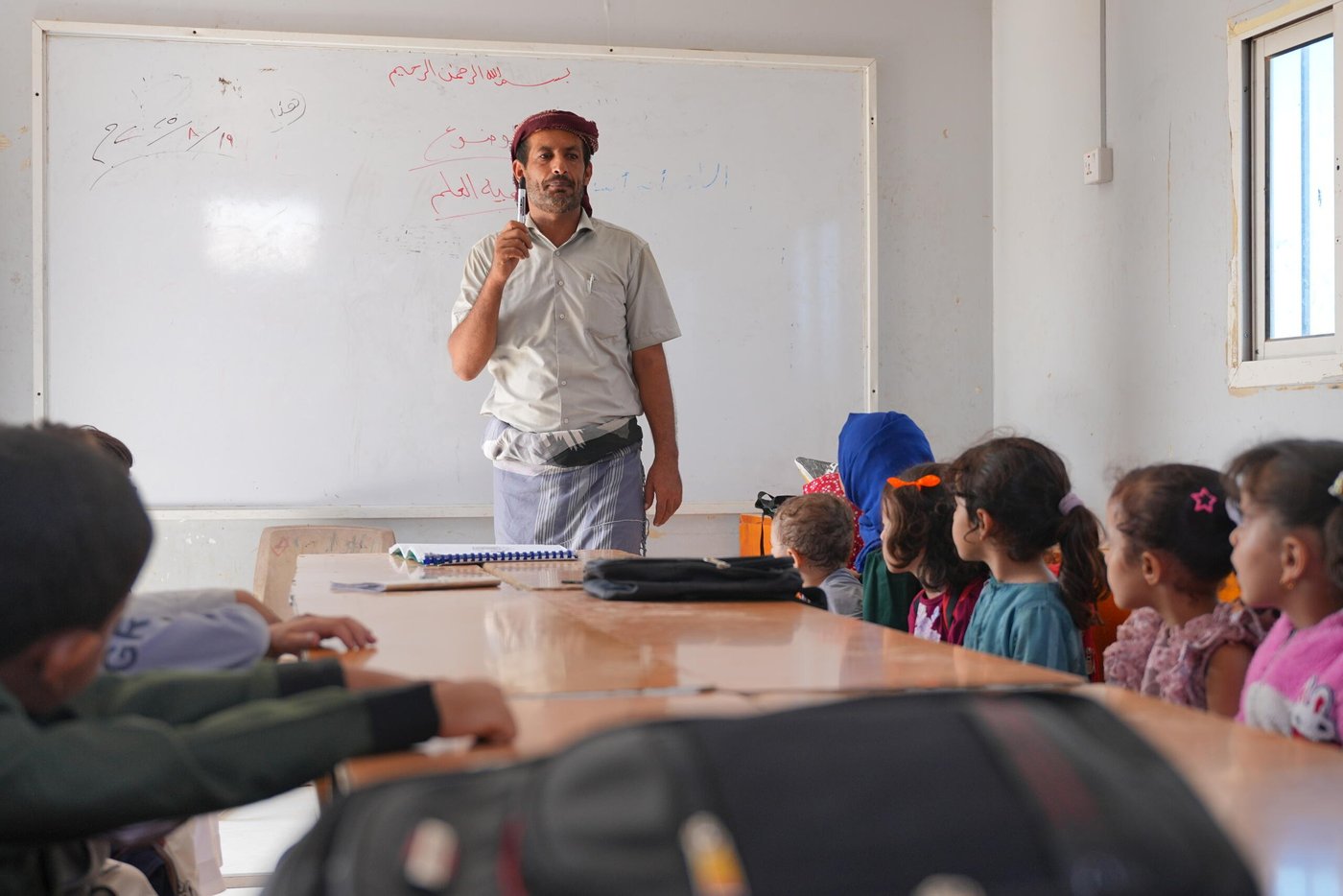With no access to education, illiteracy rates began to rise among the children. Determined to change this, parents initiated a community-led effort to establish a school. It was a major challenge, but their determination prevailed.
“The community participation began in 2020 when parents identified a plot of land for a school and reached out to humanitarian organisations to help build classrooms,” says GarAllah, 48, head of the parents' council at Abu Obaida School in Marib.
According to GarAllah , children, most of whom were displaced, began attending the school in 2020.
“Most residents here are displaced families who cannot afford to pay to support education. But those who can contribute do so without hesitation, for the sake of their children’s future,” he adds.

According to Humanitarian Needs and Response Plan 2025, around 3.2 million children of school age are out of school, with displaced children twice as likely to drop out compared to their peers.
To support education in the area, the Norwegian Refugee Council (NRC), with funding from EU Humanitarian Aid, provided students at the local Abu Obaida School with cash to buy school supplies, equipped classrooms for better learning, supported remedial classes, strengthened parents’ councils, and provided a USD 400 capitation grant to encourage community participation.
“Education has improved significantly since NRC’s intervention," continues GarAllah. "We can see the difference in the quality of education our children are receiving."
He noted that the community also donated money, which was combined with the USD 400 grant to purchase equipment for the school.
“With the community’s support, we were able to buy a loudspeaker, a computer and a printer for the school. We work closely with the school management to ensure our children receive high-quality education. We dream of a better future for them.”

Saleh, 53, leader of Madinat Zubayyen and a member of Abu Obaida School’s parents' council, confirmed the quality of education at the school and expressed thta he is proud to see children learning.
“If it weren’t for humanitarian organisations, our children wouldn’t have access to this kind of education,” he says. “Our participation is essential, everything we’ve done is for our children.”
Saleh emphasised that the community was ready to continue to support the school whenever possible.
“We built a school from nothing, and our children have gone from being illiterate to being able to read and write. That alone brings us great joy.”
Under the current EU-funded project, NRC is now helping 40,000 children to receive the education they deserve.
Sign up to our newsletter to read more stories from around the world.


